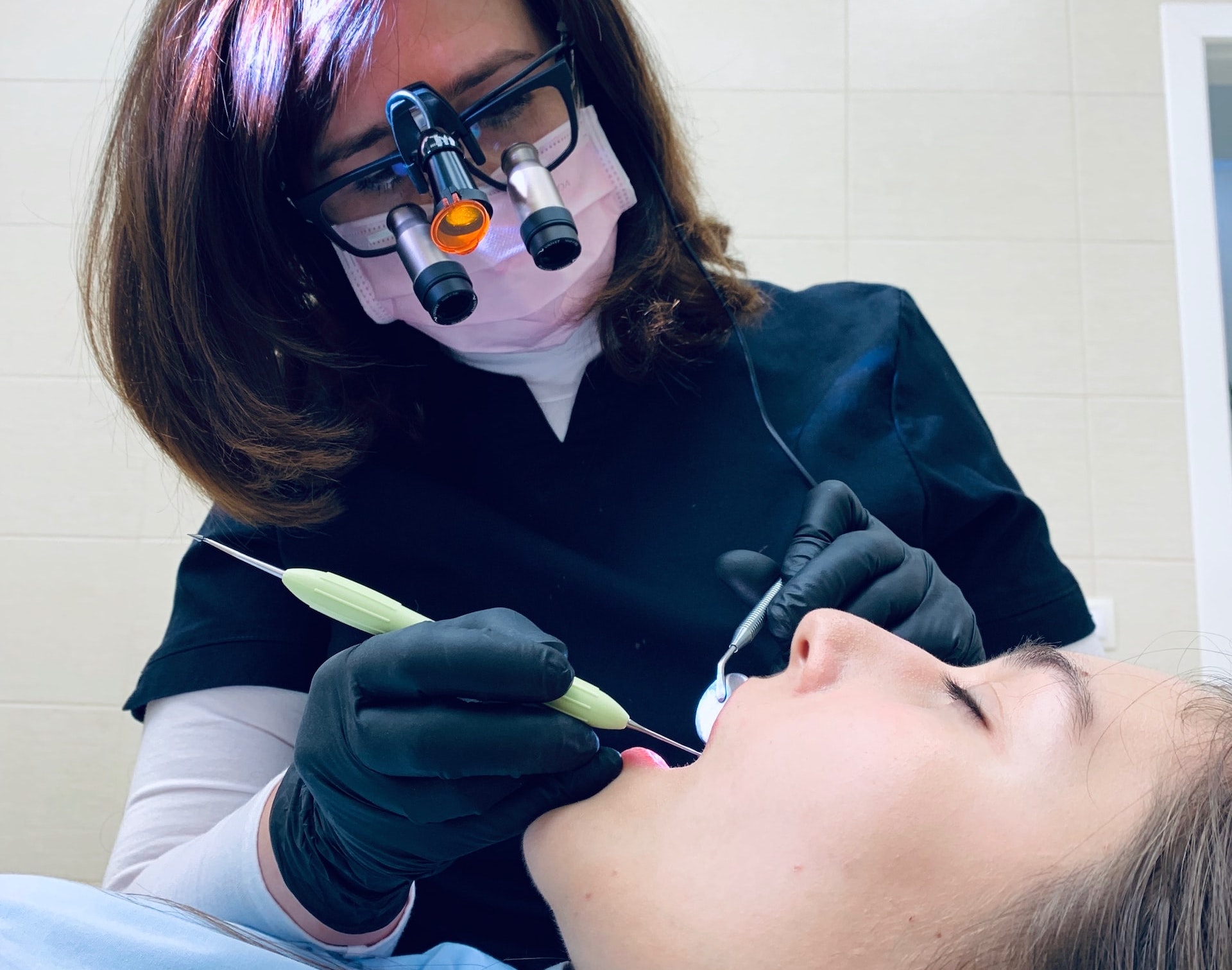Dental hygienists are an integral part of any dental team, providing important preventative care to patients to help maintain good oral health.
Working alongside dentists and other dental practitioners, they perform duties such as teeth cleaning, taking radiographs, and providing patient education on recommended oral hygiene techniques.
Becoming a dental hygienist typically requires completing an accredited dental hygiene program and passing a licensing exam, depending on the country where practicing, as we will explore below.
Work settings may include private practices, clinics, or hospitals. To be a successful dental hygienists it helps to have strong communication skills, attention to detail, and a passion for helping others maintain healthy smiles.

Dental hygienists are an integral part a patients dental care
What does a dental hygienist do?
So what do dental hygienists actually do? Specialising in the prevention and treatment of diseases of the mouth and gums, dental hygienists are essential part of a patient’s dental care journey. They conduct comprehensive oral health assessments that include reviewing individual dental health histories, charting dental work and screening for oral cancer or gum disease. Tasks can also include removing plaque from teeth, processing X-rays and applying sealants or fluoride treatments to prevent decay; additionally they administer nitrous oxide or local anesthetics if needed by patients.
They may also take impressions for study models, fabricate temporary crowns, and perform other tasks if working with a dentist.
What’s the difference between a dental hygienist and a dentist?
Both dentists and dental hygienists provide oral health care, but they have different qualifications, specialisms, roles and responsibilities as we explored above.
The main difference between them is that a dentist is typically the primary provider of care, while a dental hygienist works closely with the dentist to provide additional support to the patient and assistance.
Dentists are a licensed medical professional who has completed a doctoral degree in dental surgery or dental medicine. However, a dental hygienist is a trained health care professional who focuses on preventing and treating oral health problems. Dental hygienists clean teeth, remove plaque and tartar, and apply fluoride and other treatments to help prevent tooth decay. They also educate patients on how to maintain good oral hygiene and provide other preventive care services.
The differences between dentists and dental hygienists are best summarised this way: Your dentist will typically be your primary provider of care, while your dental hygienist will work closely with your dentist to provide support and assistance.
What education and training does a dental hygienist require in the UK
In the UK dental hygienists typically need to complete a dental hygiene degree program that is approved by the GDC (General Dental Council). Entry requirements minimums for these programs are typically:
- Minimum of five GCSEs (or equivalent) at grade C or above, including English, mathematics, and a science subject.
- Two or three A-levels (or equivalent) at grade C or above, including at least one science subject.
- Completion of a foundation degree or diploma in dental hygiene, or a related field.
The dental hygiene degree program usually takes two to three years to complete, and involves both academic coursework and clinical training. The coursework typically covers topics such as oral anatomy and physiology, dental radiography, dental materials, and dental health education. Clinical training in the program will involve working under the supervision of an already qualified dental hygienist or dentist where students will need to meet a certain amount of hours of hands-on experience. Dental hygienist students will be required to perform dental cleanings, scaling and polishing teeth, taking x-rays, and providing accurate oral health advice to patients.
After completing the dental hygiene degree program, they will need to register with the GDC to be able to legally practice as a dental hygienist in the UK. Dental hygienists are required to complete continuing professional development (CPD) courses throughout their career to maintain their registration. This ensures that they stay up-to-date with the latest dental hygiene techniques and practices.
Where do dental hygienists work?
So where do dental hygienists actually work? Dental hygienists can be found in a variety of dental settings, such as independent practices, private offices, specialist clinics and the public sector. When providing patient care, dental hygienists collaborate with a wide array of other medical professionals, like dentists, dental therapists and oral health therapists to ensure holistic oral health care.
What makes a good dental hygienist?
Dental hygienists must possess strong communication skills to effectively educate patients on proper oral hygiene practices and explain any dental procedures. They must also be detail-oriented and able to accurately document patient information. Additionally, dental hygienists must have dexterity and good hand-eye coordination to perform clinical tasks, and they must be able to work well with others as part of a dental team.
By completing a dental hygiene program and obtaining licensure, you can begin a rewarding career as a dental hygienist. In addition to the technical skills required for the job, successful dental hygienists also possess strong communication, critical thinking, and empathy. Whether working in a private dental office, public clinic, or other setting, dental hygienists make a significant impact on their patients’ oral health and overall wellbeing.